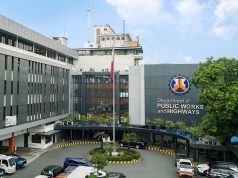Fitch Solutions cuts 2020 PHL growth outlook to 0.5%, contraction possible if Q1 weak
FITCH SOLUTIONS Country Risk and Industry Research reduced its economic growth forecast for the Philippines to 0.5% in 2020 due to the impact of the lockdown, and warned that a full-year contraction is possible if first-quarter gross domestic product (GDP) comes in lower than expected.
In a commentary issued Monday, Fitch Solutions said the downgrade follows an estimate given in March of 4%.
It said a “weak” performance for first-quarter GDP, which will be released May 7, “could prompt us to revise our forecast into contraction.” It did not say what first-quarter GDP result would trigger a full-year downgrade.
It added that the second-quarter GDP performance is also “almost certain to be negative” after the Luzon lockdown carried over into April and May.
“Our outlook for the Philippine economy has become increasingly bearish as the government’s extension of lockdown measures and global growth headwinds prove significant drags,” it said.
Fitch Solutions added that with the second quarter expected to be negative, the Philippine economy is “on the cusp of recession,” defined as a contraction in economic activity for two consecutive quarters.
It said the lockdown in Metro Manila, which was originally one month long but was extended to two months, has brought domestic activity to a “near standstill.”
It said it expects mobility restrictions to remain in place in other forms into the third quarter of the year, while a slow recovery throughout the July-September period is expected as safety measures are gradually relaxed.
Among the downside risks for the economy this year are subdued the dampened manufacturing activity, with Fitch Solutions expecting gross capital formation (GCF) to post a steeper contraction of 1.4% this year from the 0.6% drop in 2019.
It said “household consumption will falter amid lost income and deteriorating confidence,” alongside reduced employment, dampened demand and a slump in remittances.
“We now forecast private consumption to contract 2.5% in 2020. This reflects our view for the present crisis to have a larger impact on private consumption than even the global financial crisis in 2008 and the Asian financial crisis, which saw Philippines avoid a contraction in this area,” the note read.
It said manufacturers were forced to adopt cost-cutting measures by reducing workforce or wages.
“The same will play out in the services sector, with businesses in the tourism and travel sector — which indirectly account for around 25% of the economy and 26% of employment — particularly suffering, given travel restrictions,” it added.
Job cuts and the return of laid off overseas Filipino Workers led Fitch Solutions to raise its unemployment rate projection to 8% this year, from the previous forecast of 6.5% and the 5.1% recorded in 2019. — Beatrice M. Laforga



